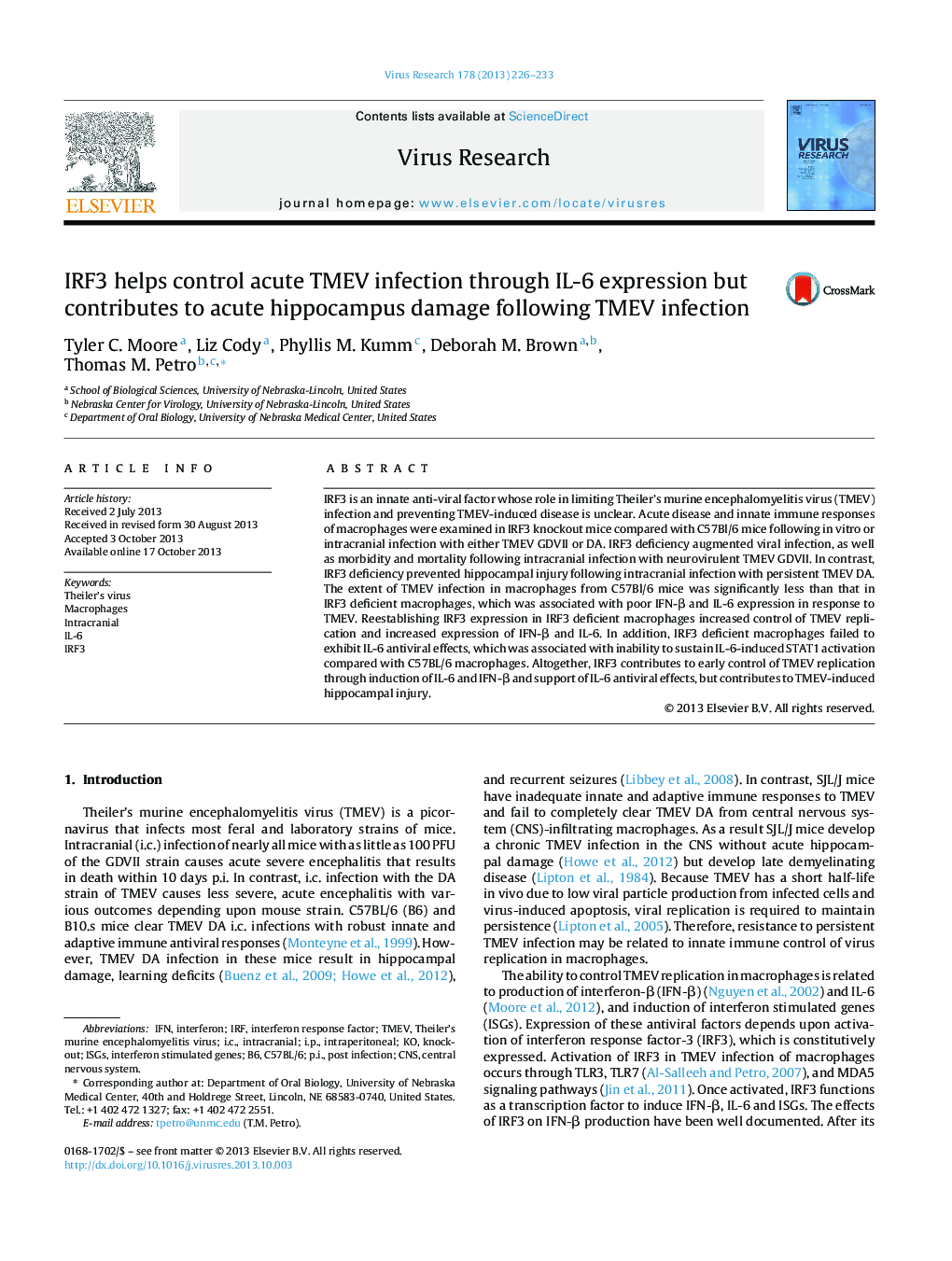| Article ID | Journal | Published Year | Pages | File Type |
|---|---|---|---|---|
| 6142664 | Virus Research | 2013 | 8 Pages |
Abstract
IRF3 is an innate anti-viral factor whose role in limiting Theiler's murine encephalomyelitis virus (TMEV) infection and preventing TMEV-induced disease is unclear. Acute disease and innate immune responses of macrophages were examined in IRF3 knockout mice compared with C57Bl/6 mice following in vitro or intracranial infection with either TMEV GDVII or DA. IRF3 deficiency augmented viral infection, as well as morbidity and mortality following intracranial infection with neurovirulent TMEV GDVII. In contrast, IRF3 deficiency prevented hippocampal injury following intracranial infection with persistent TMEV DA. The extent of TMEV infection in macrophages from C57Bl/6 mice was significantly less than that in IRF3 deficient macrophages, which was associated with poor IFN-β and IL-6 expression in response to TMEV. Reestablishing IRF3 expression in IRF3 deficient macrophages increased control of TMEV replication and increased expression of IFN-β and IL-6. In addition, IRF3 deficient macrophages failed to exhibit IL-6 antiviral effects, which was associated with inability to sustain IL-6-induced STAT1 activation compared with C57BL/6 macrophages. Altogether, IRF3 contributes to early control of TMEV replication through induction of IL-6 and IFN-β and support of IL-6 antiviral effects, but contributes to TMEV-induced hippocampal injury.
Keywords
Related Topics
Life Sciences
Immunology and Microbiology
Virology
Authors
Tyler C. Moore, Liz Cody, Phyllis M. Kumm, Deborah M. Brown, Thomas M. Petro,
